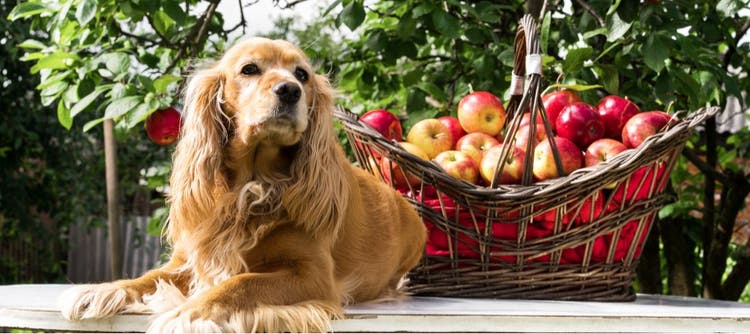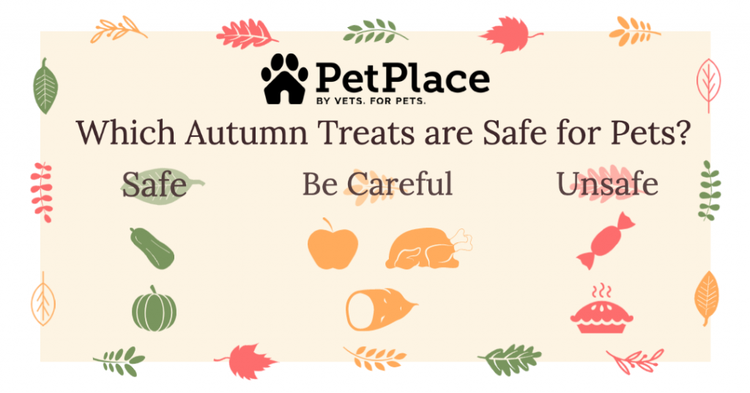
5 Pet-Safe Fall Foods (And 3 to Avoid)
The leaves are changing and the temperature is falling — autumn is finally here. Pet parents are picking out Halloween costumes, purchasing winter coats, and even inviting pets to indulge in some of their favorite seasonal treats.
5 Fall Foods to Share with Your Pet
Some foods just taste better September through November. Here are five that you can safely share with the four-legged members of your family:
- Apples: Few things say fall like the taste of a crisp apple. Apples are a hydrating, high-fiber snack that even has added dental benefits. Teething pets love the crunchy texture, and chewing on apples can even freshen their breath. However, be especially careful when serving apples. Apple seeds contain a cyanide-like substance that can prove deadly in large quantities.
- Butternut Squash: While raw squash may be challenging to chew and digest, a small, cooked portion makes for a great addition to your dog or cat’s bowl. This vegetable is full of immune-boosting minerals and a hefty dose of fiber.
- Cranberries: Fighting inflammation and supporting the immune system, cranberries are an antioxidant-rich snack. Add some unsweetened cranberries to your pet’s diet to supplement their daily intake of vitamins like A, B1, and C.
- Pumpkin: Rich in fiber and beta carotene, this ubiquitous fall fruit is perfectly safe for dogs and cats. Many veterinarians even recommend using unsweetened pumpkin to help make new foods more acceptable to picky eaters.
- Sweet Potatoes: Vitamin A, Vitamin C, and calcium are just three of the reasons to consider adding cooked, unseasoned sweet potatoes to your pet’s next meal. When preparing, make sure to cook them thoroughly. Raw potatoes include a substance called solanine that can cause intestinal blockages and other health concerns.

3 Autumn Foods That Are Dangerous for Pets
While those fall favorites are safe for the whole human family, keep your dogs and cats away from these potentially hazardous foods:
- Candy: Halloween is a busy day for emergency veterinarians, as accidental poisoning tends to increase nationwide. We all know that chocolate is toxic to dogs, but that’s not the only danger posed by your bag of Halloween candy. Xylitol, an artificial sweetener, can be deadly in almost any quantity. That’s not to mention the risks of all that fat and sugar.
- Pies: Apple pie, pumpkin pie, sweet potato pie — this time of year means plenty of seasonal desserts. Unfortunately, the added fat and sugar make these baked goods a dangerous treat for dogs and cats.
- Thanksgiving turkey: While turkey is a safe, protein-rich snack for dogs and cats, pet parents should only serve unseasoned, de-boned, and skinless poultry. This will reduce the risk of weight gain and digestive problems, while eliminating the possibility of choking or injury from sharp bones.
Your Pet’s Diet
Healthy or unhealthy, human foods aren’t really meant for pets. While you might not consider broccoli or cauliflower a treat, it’s important that foods from the table never make up more than 10% of your pet’s diet. Always opt for plain, unseasoned foods and consult with your veterinarian before making any updates to your pet’s diet.